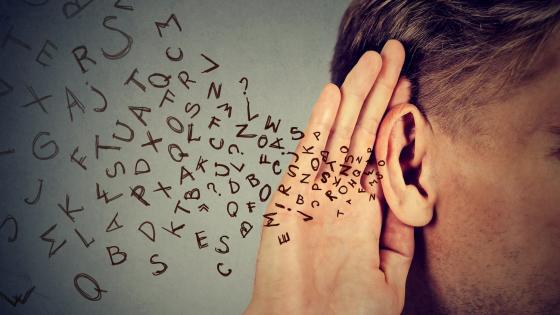“I went into economics for two reasons. One was that as a child of the Great Depression I was terribly concerned about the world. Many of the problems were economic in origin…” - James Tobin, Conversations with Economists
As the world economies have started to recover from the largest economic crisis since the Great Depression, attention is shifting from the immediate response to the long-term effect of the crisis.
Past crises left a long-lasting mark on the structure of the economy, on politics, on the way economists think about the economy, and, more broadly, on people’s psychology and beliefs. For instance, the Great Depression gave the state a new role in stabilising the economy, created a new political alliance that dominated the US for several decades, and prompted the Keynesian revolution and the birth of macroeconomics.
It is too early to know the long-lasting economic effects of the current crisis but, as the chief economist of the IMF Olivier Blanchard put it, “… the crisis has left deep scars, which will affect both supply and demand for many years to come” (Blanchard 2009). In addition to the “deep economic scars,” the crisis will leave a set of questions with which economists will grapple for some time. Will the dramatic financial disintermediation of the past two years be a permanent feature of the economy? Is it possible to have a sustained “creditless” recovery? Should governments change their approaches to regulation?
Great recessions and great literature
Beyond the economic and political effects, economic crises have a traumatic effect on peoples’ psychology and attitude, as superbly illustrated by Steinbeck in The Grapes of Wrath and Of Mice and Men, which were written in the middle of the Great Depression. The experience of the dramatic years during the Great Depression had a large impact on people and, ultimately, helped forge the social beliefs and attitudes that sustained a political system for many years.
What are the psychological and political effects of the current crisis? While we do not have yet a new author describing the pains of the subprime loans as well as Steinbeck did for the Dust Bowl, recent research can give some indication of the effects of economic shocks on people’s psychology and behaviour.
New research based on General Social Survey data
Our research studies the impact of severe recessions on individual’s broad beliefs and attitudes (Giuliano and Spilimbergo, 2009). Our study relies on answers to the General Social Survey, which has been conducted in the US almost every year since 1972, to analyse how economic shocks have affected the attitudes of different generations in the US. The basic idea is to match macroeconomic shocks during early adulthood with self-reported answers from the General Social Survey.
There is an important challenge in analysing the effects of shocks on individuals’ beliefs. Individuals go through many experiences over their life cycle and it is important to control for all these additional factors. In particular, other non-economic factors, including wars and the culture revolutions, can affect various generations in different ways.1 So, for instance, the generations growing up during the Great Depression could have been affected also by the experience of World War II.
In order to disentangle the effects of economic distress from other nationwide events, we use the fact that there is considerable heterogeneity in the economic growth across US regions.2 For example, in any year, New England may be in a severe recession while the rest of the country experiences positive growth. It turns out that a severe regional recession strikingly alters the attitudes and beliefs of individuals growing up there. Recessions do alter perceptions, especially of people between the ages of 18 and 25. Recession-influenced respondents expressed a stronger preference for government redistribution and tended to believe that success in life was more a matter of luck than hard work.
The attitudinal effect of recessions
Four points are worth noting.
- First, the effects of a severe recession experienced are large when the individual is between the ages of 18 and 24 – the so-called formative age – during which social psychologists think most of social beliefs are formed; the effects are not so strong when the recession is experienced later in life.
- Second, these effects are permanent because attitudes of recession-stricken individuals remain significantly altered many years after the severe recession ends.
- Third, we control for individuals’ endowments such as income, level of education, and ownership of a house that could also have an impact on beliefs. We thus measure the direct effect of a recession on beliefs; this effect could be even bigger if we added also the indirect effect through the personal endowments, which are also affected by a recession.
- Fourth, our estimation represents a lower bound of the effect of a recession on beliefs because our identification strategy relies only on regional shocks implicitly ignoring the effects of nationwide recessions.
Focusing on the financial market and using nationwide shocks, Ulrike Malmendier and Stefan Nagel (2009) shows that that birth cohorts that have experienced high stock market returns throughout their life report lower risk aversion, are more likely to be stock market participants, and, if they participate, invest a higher fraction of liquid wealth in stocks. In addition, cohorts that have experienced high inflation are less likely to hold bonds. Interestingly, stock market returns and inflation early in life affect risk-taking several decades later. These findings explain why different generations have different investment patterns.
Why do beliefs on the importance of luck, the role of the state, and redistribution matter for the economy? Today’s experiences and beliefs shape tomorrow’s political climate, and, ultimately, determine policies. Thomas Piketty (1995) has shown that people who believe that luck plays a big role are more comfortable with higher taxes. Similarly, Alesina and Angeletos (2005) and Benabou and Tirole (2006) show that the interaction between a belief in fairness or “in a just world” respectively are able to generate an “American” equilibrium with laissez-faire policies and just-world beliefs and a “European” equilibrium with social welfare and a more pessimistic view about how just the world is.
A new Big Government generation?
So, it is possible that the experience of the current severe recession is forming a generation that will be more risk -verse, invest less in the stock market, want more state intervention, believe more in redistribution, and accept higher taxes?
Large political realignments in the US have often coincided with traumatic economic events, which were supposed (but without firm evidence so far) to change attitudes and, ultimately, the political climate. Each crisis is a point of choice with important implications for the future.3 A consistent body of research is now showing how economic conditions affect beliefs and attitudes. However, it seems that politicians around the world are welcoming the new zeitgeist even without waiting for economists’ results.
Footnotes
1 For instance, Strauss and Howe (1991) argue that a cycle of various generations explains major events in US history. According to these authors, US history is explained by the succession of four types of generations: idealist, reactive, civic, and adaptive. The succession of these four types is independent of economic events.
2 There are nine macro regions in the US.
3 Interestingly, the word crisis comes from Ancient Greek κρίσις (krisis) which means “decision, choice, election, judgment, dispute.”
References
Alesina, Alberto, and George-Marios Angeletos, (2005), “Fairness and Redistribution: US vs. Europe,” American Economic Review, Vol. 95 (September), pp. 913–35.
Benabou, Roland, and Jean Tirole, (2006), “Belief in a Just World and Redistributive Politics,”Quarterly Journal of Economics, Vol. 121 (May), No. 2, pp. 699–746.
Blanchard, Olivier (2009). “Sustaining a Global Recovery”, Finance & Development, September.
Giuliano, Paola, and Antonio Spilimbergo, (2009), “Growing Up in a Recession: Beliefs and the Macroeconomy,” CEPR Discussion Paper 7399.
Malmandier, Ulrike, and Stefan Nagel, (2009), “Depression Babies: Do Macroeconomic Experiences Affect Risk-Taking?” mimeo.
Piketty, Thomas, (1995), “Social Mobility and Redistributive Policies,” Quarterly Journal of Economics, Vol. 110, No. 3, pp. 551–84.
Strauss, William, and Neil Howe, (1991), Generations: The History of America's Future, 1584-2069. Harper Perennial.


